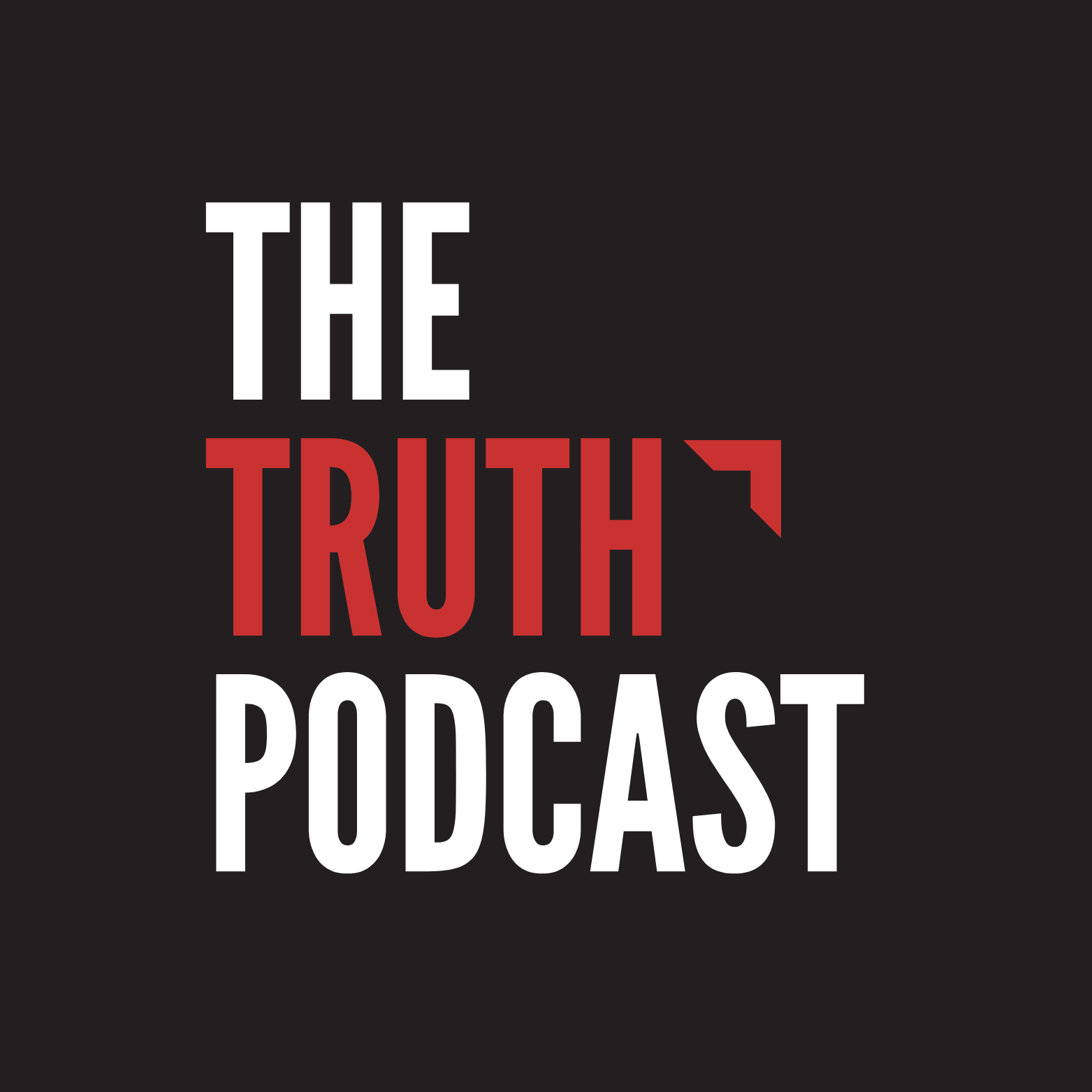How Toxic People Work
Welcome back to the podcast! Today we're getting a little more personal in our "How Stuff Works" series. Tune in!
--
The PursueGOD Truth podcast is the “easy button” for making disciples – whether you’re looking for resources to lead a family devotional, a small group at church, or a one-on-one mentoring relationship. Join us for new episodes every Tuesday and Friday.
Find resources to talk about these episodes at pursueGOD.org.
Help others go "full circle" as a follower of Jesus through our 12-week Pursuit series.
Click here to learn more about how to use these resources at home, with a small group, or in a one-on-one discipleship relationship.
Got questions or want to leave a note? Email us at podcast@pursueGOD.org.
--
How Toxic People Work: Understanding the Inner Life of a Toxic Person
Today’s topic hits close to home for many people. Toxic people aren’t just “difficult personalities.” According to the Bible, their behavior often stems from deep spiritual dysfunction. In this installment of our “How Stuff Works” series, we examine what really drives toxic people and how we can respond biblically and wisely.
We’re looking at the tragic life of King Saul, Israel’s first king. At first, Saul appeared to be a promising leader—anointed by God, popular with the people, and empowered to lead. But his story quickly derailed due to unchecked insecurity, spiritual rebellion, and destructive behaviors that poisoned his relationships and led to his downfall.
Through Saul’s life, we uncover four key truths about how toxic people work. This study will help you understand toxic patterns, identify red flags, and—most importantly—learn how to respond like David did: with grace, boundaries, and wisdom.
1. Toxic People Are Driven by Insecurity
Scripture Reference: 1 Samuel 18:6-9 (NLT)
When David rose to fame after defeating Goliath, Saul’s jealousy ignited. Rather than celebrating David’s success, Saul saw him as a threat.
“They credit David with ten thousands and me with only thousands. Next they’ll be making him their king!” – Saul (1 Samuel 18:8)
This response reveals a deep insecurity—a fear of being replaced, overshadowed, or exposed. Toxic people often present as confident or successful, but beneath the surface is a fragile identity rooted in comparison and fear.
Spiritual Insight:
True security comes from knowing you are made in the image of God. Without that, people seek worth through achievements, control, or praise. Saul had no mentor to guide him toward that deeper security—and it cost him everything.
2. Toxic People Are Used by the Enemy
Scripture Reference: 1 Samuel 19:9-10 (NLT), Romans 1:28, 1 Timothy 1:19-20
After rejecting God's authority, Saul became vulnerable to spiritual torment. The Bible says “a tormenting spirit from the LORD” came upon him—a judgment, not cruelty. God gave Saul over to his rebellion, just as Romans 1 warns.
Toxic behavior can be a form of spiritual warfare. Satan works through envy, rage, deceit, and division—the very qualities that defined Saul’s descent. He went from throwing spears to throwing accusations and lies.
Common toxic traits tied to this:
- Manipulative
- Controlling
- Judgmental
- Blaming others
Contrast this with the fruit of the Spirit (Galatians 5:22-23): love, joy, peace, patience, kindness, goodness, faithfulness, gentleness, and self-control.
3. Toxic People Believe Their Own Lies
Scripture Reference: 1 Samuel 22:7-8 (NLT), John 8:44
Toxic people often live in a narrative that justifies their behavior. Saul painted himself as the victim and accused David and even his own son Jonathan of betrayal—fabricating a conspiracy that didn’t exist.
Jesus said that Satan is “the father of lies” (John 8:44), and those influenced by him will twist the truth to suit their agenda. Toxic people gaslight, manipulate, and blame to maintain control and justify their actions.
This form of dishonesty becomes part of their identity—they no longer distinguish between truth and deception.
4. Toxic People Ultimately Destroy Themselves
Scripture Reference: 1 Samuel 31:1-6 (NLT)
The final chapter of Saul’s life is devastating. After years of paranoia, violence, and spiritual rebellion, he dies in battle, taking his sons and companions with him. The toxic fallout of his life affected everyone close to him.
“So Saul, his three sons, his armor bearer, and his troops all died together that same day.” – 1 Samuel 31:6
Unchecked toxicity isn’t just relational—it’s self-destructive. And it leaves collateral damage in its wake.
Responding to Toxic People: Lessons from David
David, the target of Saul’s toxicity, offers us a model of how to deal with these kinds of relationships.
A. Don’t Take Revenge
Scripture Reference: 1 Samuel 26:23-24, Romans 12:18
David had multiple opportunities to kill Saul, but he refused. He trusted God to deal with Saul in His own time. Toxic people provoke us to react—but revenge only fuels the cycle.
“I refused to kill you even when the LORD placed you in my power… May the LORD value my life, even as I have valued yours today.” – David (1 Samuel 26:24)
B. Learn to Walk Away
Scripture Reference: 1 Samuel 19:10, 1 Samuel 27:1, 2 Timothy 4:14-15
David didn’t try to fix Saul. He set a boundary. He walked away. For nine chapters of 1 Samuel, David is on the run, choosing safety and sanity over confrontation.
“The best thing I can do is escape to the Philistines… and I will finally be safe.” – David (1 Samuel 27:1)
This wasn’t weakness. It was wisdom. Sometimes the most Christlike thing you can do is walk away. Even Jesus did it—with the Pharisees, with toxic crowds, with unrepentant people.
Final Encouragement
Not every difficult person is toxic. But when you recognize the patterns, don’t try to fix, please, or control them. That’s not your job. Let God handle them, and focus on keeping your heart pure.
If someone in your life fits this profile, pray for wisdom. Set boundaries. Trust God. And remember David’s example: don’t become toxic in the process of dealing with toxicity.

